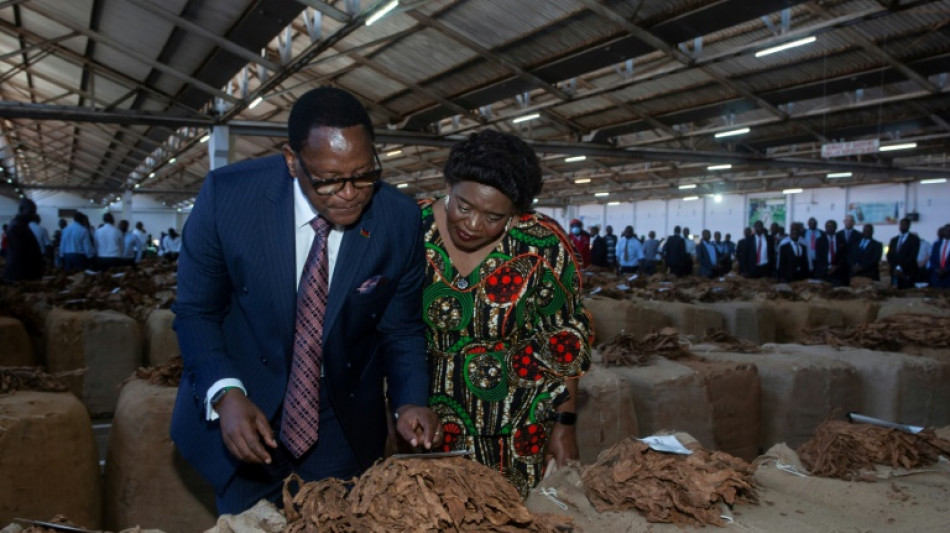
-
 Facebook added 'value' to Instagram, Zuckerberg tells antitrust trial
Facebook added 'value' to Instagram, Zuckerberg tells antitrust trial
-
Trump signs order aimed at lowering drug prices
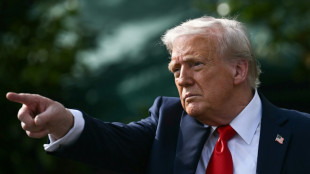
-
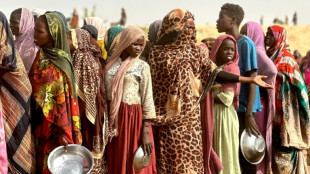 Paramilitaries declare rival government as Sudan war enters third year
Paramilitaries declare rival government as Sudan war enters third year
-
Nvidia expects $5.5 bn hit as US targets chips sent to China

-
 Emery targets 'next step' for Aston Villa after Champions League heroics
Emery targets 'next step' for Aston Villa after Champions League heroics
-
'Gap too big' for Dortmund after first leg, says Guirassy

-
 Maradona's daughter says doctors could have prevented his death
Maradona's daughter says doctors could have prevented his death
-
Barcelona 'justified' semi-final spot despite Dortmund loss, says Flick

-
 'We thought the tie was over': Dembele admits PSG switched off against Villa
'We thought the tie was over': Dembele admits PSG switched off against Villa
-
Wine consumption falls heavily into the red

-
 Barca through to Champions League semis despite Guirassy hat-trick
Barca through to Champions League semis despite Guirassy hat-trick
-
Global stocks mixed amid lingering unease over trade war
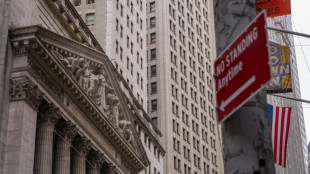
-
 PSG survive Aston Villa scare to reach Champions League semis
PSG survive Aston Villa scare to reach Champions League semis
-
Pandemic treaty talks fight late hurdles
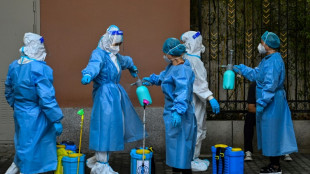
-
 Trump resurrects ghost of US military bases in Panama
Trump resurrects ghost of US military bases in Panama
-
Family seeks homicide charges against owners of collapsed Dominican nightclub
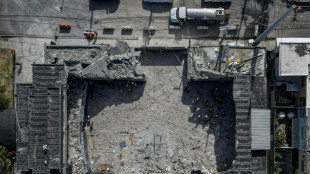
-
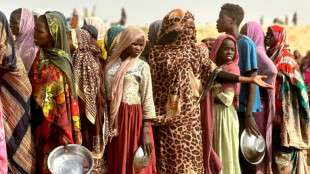 Sudan paramilitary chief declares rival government two years into war
Sudan paramilitary chief declares rival government two years into war
-
Boeing faces fresh crisis with US-China trade war

-
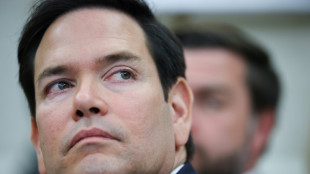 Trump eyes slashing State Department by 50 percent: US media
Trump eyes slashing State Department by 50 percent: US media
-
Canada offers automakers tariff relief, Honda denies weighing move
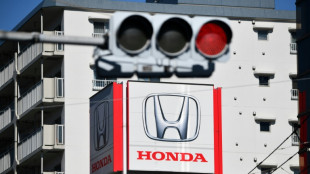
-
 Facebook added 'value' to Instagram, Zuckerberg says in antitrust trial
Facebook added 'value' to Instagram, Zuckerberg says in antitrust trial
-
French Ligue 1 clubs vote to break TV deal with DAZN
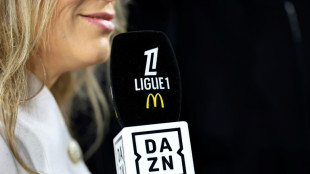
-
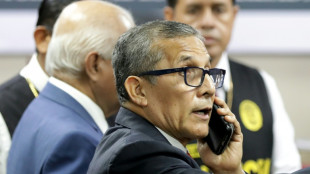 Peru court sentences ex-president Humala to 15 years for graft
Peru court sentences ex-president Humala to 15 years for graft
-
Sumy buries mother and daughter victims of Russian double strike
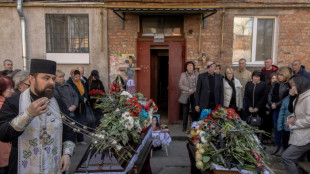
-
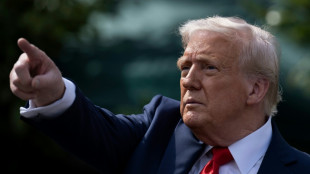 Trump says ball in China's court on tariffs
Trump says ball in China's court on tariffs
-
Kane urges Bayern to hit the mark against Inter in Champions League
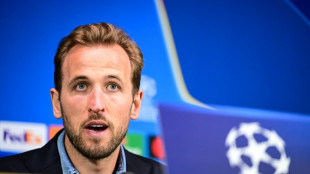
-
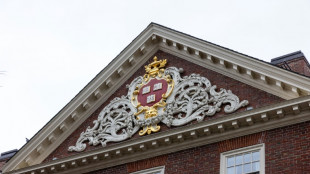 Trump ramps up conflict against defiant Harvard
Trump ramps up conflict against defiant Harvard
-
Arteta feeding Arsenal stars 'opposite' of comeback message
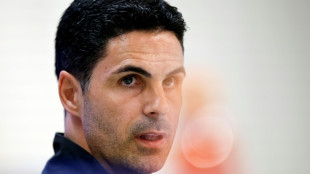
-
 France's Macron honours craftspeople who rebuilt Notre Dame
France's Macron honours craftspeople who rebuilt Notre Dame
-
Watkins left on Villa bench for PSG return

-
 Chahal stars as Punjab defend IPL's lowest total of 111 in 'best win'
Chahal stars as Punjab defend IPL's lowest total of 111 in 'best win'
-
French swim star Marchand considered taking year-long break

-
 Chahal stars as Punjab defend IPL's lowest total of 111
Chahal stars as Punjab defend IPL's lowest total of 111
-
Universal Studios, Venice Beach to host LA 2028 events

-
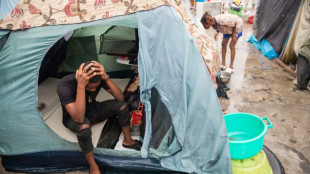 IOM chief urges world to step up aid for Haiti
IOM chief urges world to step up aid for Haiti
-
French prisons hit by mystery arson and gunfire attacks
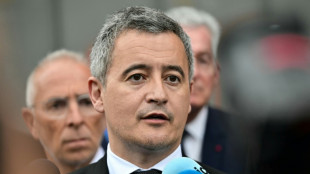
-
 Alcaraz follows Ruud into Barcelona Open last 16
Alcaraz follows Ruud into Barcelona Open last 16
-
Stocks rise on bank earnings, auto tariff hopes
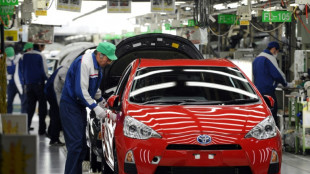
-
 Trump showdown with courts in spotlight at migrant hearing
Trump showdown with courts in spotlight at migrant hearing
-
Ecuador electoral council rejects claims of fraud in presidential vote

-
 Russia jails four journalists who covered Navalny
Russia jails four journalists who covered Navalny
-
Trump says China 'reneged' on Boeing deal as tensions flare
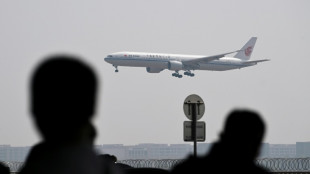
-
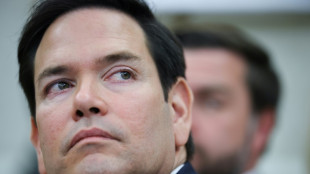 Trump eyes near 50 percent cut in State Dept budget: US media
Trump eyes near 50 percent cut in State Dept budget: US media
-
Trump says would 'love' to send US citizens to El Salvador jail
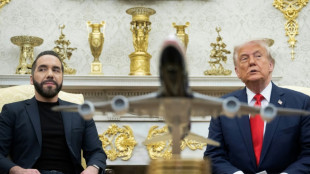
-
 'Unprecedented' Europe raids net 200 arrests, drugs haul
'Unprecedented' Europe raids net 200 arrests, drugs haul
-
Everyone thinks Real Madrid comeback 'nailed-on': Bellingham

-
 NATO's Rutte says US-led Ukraine peace talks 'not easy'
NATO's Rutte says US-led Ukraine peace talks 'not easy'
-
Harvey Weinstein New York retrial for sex crimes begins
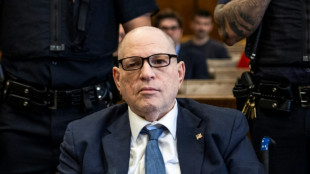
-
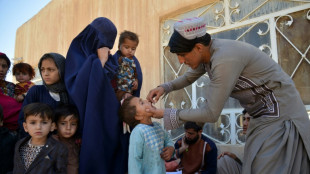 More than 10% of Afghans could lose healthcare by year-end: WHO
More than 10% of Afghans could lose healthcare by year-end: WHO
-
Stocks rise as auto shares surge on tariff break hopes
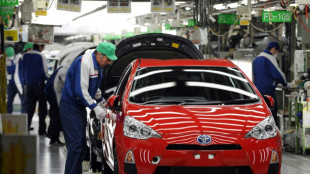

Malawi's debt crisis deepens as aid cuts hurt
Behind a dimly lit bar in Malawi's capital, Ben Manda rubbed his tired eyes and poured a customer a drink. He had been working for 36 hours straight, packing in back-to-back shifts to feed his family of four.
"I haven't been home in three days," said the 32-year-old barman in a run-down club in Mtandire, one of Lilongwe's largest and most crowded informal settlements. "Times are tough."
Manda is a casualty of Malawi's economic struggles, his livelihood hanging by a thread as foreign aid cuts and mounting national debt tighten their grip on his destitute African country.
A small television above the bar flickered with news reports of budget shortfalls, unpaid salaries, and a spiralling cost of living.
"The problem is that our leaders divert the money from its intended use," Manda said, accusing the political leadership of misusing foreign aid.
The country of 21 million people -- more than two-thirds of whom live in extreme poverty, according to the World Bank -- has for decades been dependent on foreign aid.
The scaling back of funding from Washington's USAID agency this year as well as cuts by Britain and other donors has fed a storm of crises causing economic instability that is worsening ahead of general elections in September.
"Since 2013, the country has lost an estimated five percent of its GDP, or roughly $545 million annually, due to reduced donor assistance," Agness Nyirongo, economic governance officer for the Centre for Social Concern, a non-government organisation, told AFP.
"The aid withdrawal means the country has to prioritise the little revenue locally generated to repay loans at the expense of service delivery," said Willy Kambwandira of the Centre for Social Accountability and Transparency.
Malawi is one of six countries with unsustainable debt levels, according to the International Monetary Fund's (IMF) February 2025 list.
Public sector debt rose from 48 to 93 percent of GDP between March 2020 and March 2024, according to government figures cited in an IMF report this month.
"Fiscal pressures that have contributed to this rise include spending to combat the Covid-19 pandemic and the aftereffects of three cyclones, high inflation, and rising foreign exchange rates," it said.
- Little left over -
Structural weaknesses and fiscal mismanagement have contributed to Malawi's economic woes, said university lecturer Bertha Chikadza, president of the Economics Association of Malawi.
For example, tobacco dominates exports, making up 60 percent, and price slumps for the crop have cut foreign exchange earnings.
"With little or no diversification in export earnings, the country has had persistent trade deficits," she said.
Debt servicing consumes about half of domestic revenue, leaving little for health, education and other critical sectors, Chikadza said.
With inflation of 28.5 percent this year pushing up prices, Malawians have taken to the streets in protest in several cities.
Government coping measures, including cutting public spending and raising taxes, have been deeply unpopular.
President Lazarus Chakwera, standing for re-election in September, repeated at the UN General Assembly last year pleas for debt relief to give his country -- and African nations in a similar plight -- some "breathing space".
The topic is a priority this year for the G20 group of leading economies under the presidency of South Africa, the first African nation to hold the role.
More than half of Africa's 1.3 billion people live in countries that spend more on interest payments than on social issues such as health, education and infrastructure, according to the South African government.
The solution is not to write off debt, said David McNair, global policy executive director at the One Campaign non-profit group.
Developing countries such as Malawi "need more borrowing to allow them to invest, particularly because of the demographic trends," he said.
However, their debt is "too expensive," he said, calling for the G20 to put in place a review of ratings agencies' assessments of debt risk and find ways to unlock lower-cost private capital.
R.Kloeti--VB
